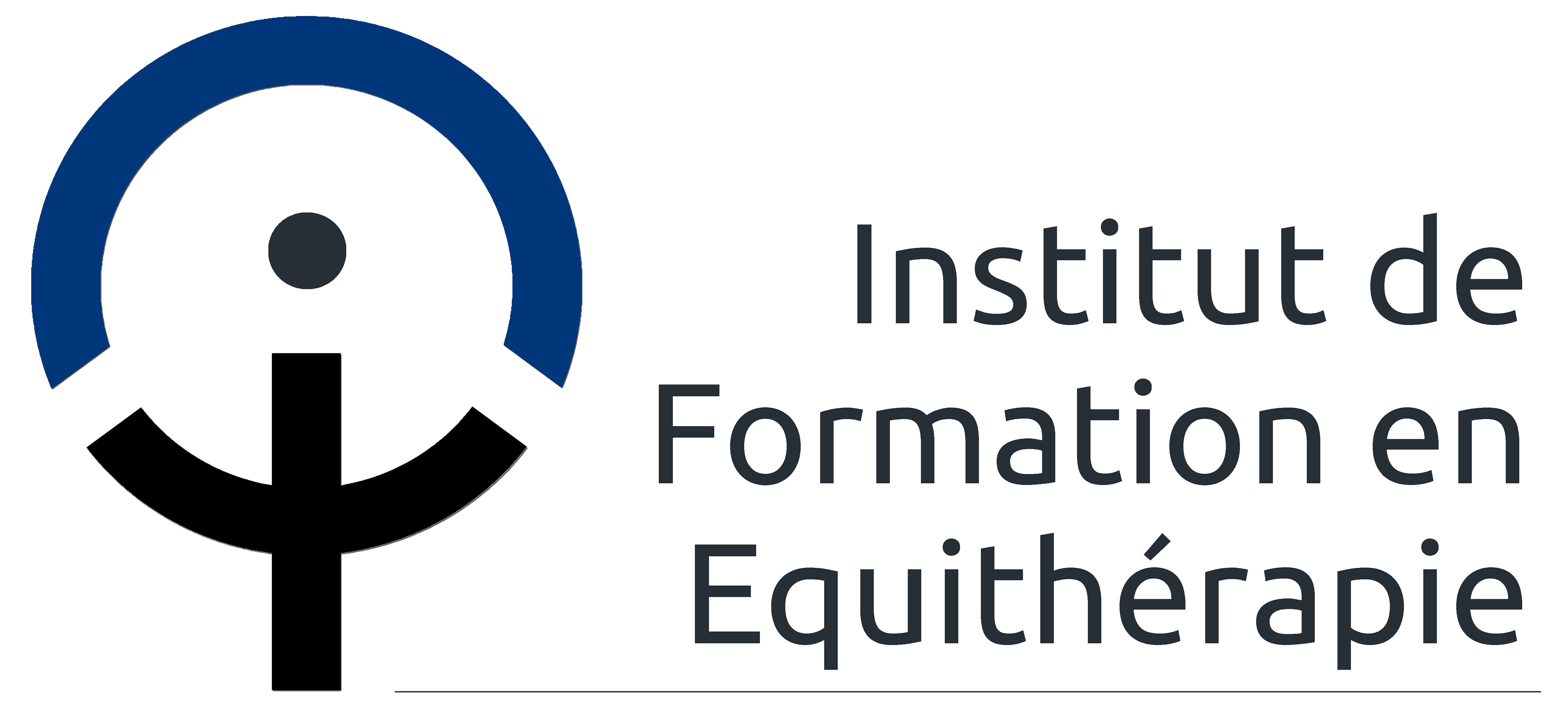Classement par date de publication, du plus récent au plus ancien
- Myths and facts in the treatment of neurodevelopmental disorders – other therapies, Francisco, C. et al., Jornal de Pediatrica, Vol. 102, Sup. 1, mars-avril 2026. DOI : https://doi.org/10.1016/j.jped.2025.101452
- A retrospective study of a psychotherapy incorporating horses for veterans with PTSD, Marchand, W. et al., Journal of Equine Rehabilitation, Vol. 3, 2025. DOI : https://doi.org/10.1016/j.eqre.2025.100043
- Cognitive and physiological impacts of psychotherapy incorporating human-equine interactions during substance withdrawal: A scoping review, Friend, M. et al., Journal of Equine Rehabilitatioin, Vol. 3, 2025. DOI : https://doi.org/10.1016/j.eqre.2025.100022
- Equine-Assisted-Psychotherapy in Youth Exposed to Adverse Childhood Experiences or Psychological Trauma: A Scoping Review, Pereira-Figueiredo, I. et al., HETI Journal, 2025. DOI: https://doi.org/10.58862/NRFW2470
- Equine-assisted therapy in quality of life and functioning of people with active epilepsy: A feasibility study, De Andrade Santos, F.O. et al., Epilepsy & Behavior Reports, vol. 28, 2024. DOI : https://doi.org/10.1016/j.ebr.2024.100707
- Heart rate and salivary cortisol as indicators of arousal and synchrony in clients, therapy horses and therapist in equine-assisted therapy, Nader, A. et al., Complementary Therapies in Clinical Practice, Vol. 59, mai 2025. DOI : https://doi.org/10.1016/j.ctcp.2025.101937
- The tipping point: Exploring the influence of rider presence and posture on gait parameters in horses working in mounted equine-assisted services, Baxley, B.H. et al., Journal of Equine Veterinary Science, vol. 154, novembre 2025. DOI : https://doi.org/10.1016/j.jevs.2025.105699
- Hair cortisol assessment of equine assisted therapy horses: Assessing long-term welfare and influencing management factors, Zitek, S. et al., Applied Animal Behaviour Science, Vol. 285, avril 2025. DOI : https://doi.org/10.1016/j.applanim.2025.106570
- Riders, parents and facilitators views on the influence of Equine-Assisted Learning on motor, social and cognitive skills in young individuals with Autism Spectrum Disorder – an interview study, Xanthopoulou, V. et al, HETI Journal, 2025. DOI : https://doi.org/10.58862/JACU6991
- Impact of an Intensive Six-Day Equine-Assisted Physiotherapy Programme on Functional Mobility and Respiratory Outcomes in Children with Down Syndrome, Zitek, S., Mendeley Data, 23 décembre 2024,.DOI: https://doi.org/10.17632/zhf448wyt8.1
- A short term equine assisted learning program improves family relationships, Sullivan, K & Hemingway, A., HETI Journal, 2024
- Interpersonal Trust and Self-Confidence as Central Effects of Equine-Assisted Interventions for Children, Barzen, A., HETI Journal, 2023
- A prospective International Study of Terminology in human-equine interactions, Mattila-Rautiainen, S. et al., HETI Journal, 2023
- An Investigation into the change in veterans’ well-being after Equine-Assisted Activities, Dennis, L. et al., HETI Journal, 2023
- L’identité et les frontières de la médiation équine face aux enjeux de l’inter-professionnalisation, Emond, N., IFCE, Actes de l’Equimeeting médiation, Table ronde : Cadres et frontières de l’exercice professionnel, 15 septembre 2022
- Une approche complémentaire dans le trouble de stress post-traumatique chez l’enfant : la médiation équine thérapeutique, Hameury, L & Rossetti, L., Neuropsychiatrie de l’Enfance et de l’Adolescence, 18 mai 2021
- Le cheval, un formidable allié pour aider l’enfant à dépasser ses difficultés, Moret, C., Cahiers de la puériculture, vol. 57, n°334, pp 18-22, février 2020
- Parental perception of changes in basic life needs of children with disabilities after six months of Therapeutic Horseback Riding: a qualitative study, Lovrić R, Farčić N, Mikšić S & Gvozdanović Debeljak A., International Journal of Environmlental Research and Public Health, 13 février 2020
- Changes in motor skill proficiency after Equine-Assisted Activities and Brain-Building Tasks in youth with neurodevelopmental disorders, Rigby BR, Davis RW, Bittner MD, Harwell RW, Leek EJ, Johnson GA & Nichols DL, Frontiers in Veterinary Science, 31 janvier 2020
- Networking for equine complementary therapists in the rural economy, Abot, J. & Fuller-Love, N., Journal of Rural Studies, 28 janvier 2020
- The effect of equine-assisted therapies on behavioural, psychological and physical symptoms for children with attention deficit/hyperactivity disorder: A systematic review, White, E., Zippel, J. & Kumar, S., Complementary therapies in clinical practice, 23 janvier 2020
- Acceptability of an adjunct equine-assisted activities and therapies program for veterans with posttraumatic stress disorder and/or traumatic brain injury, Sylvia, L. et al., Journal of integrative medicine, 21 janvier 2020
- An equine-assisted therapy intervention to improve pain, range of motion, and quality of life in adults and older adults with arthritis: A randomized controlled trial, White-Lewis, S. et al., Applied nursing research, Volume 49, pp. 5-12, octobre 2019
- Equine assisted activities and therapies in children with autism spectrum disorder: A systematic review and a meta-analysis, Trzmiel, T. et al., Complementary Therapies in Medicine, n°42, pp. 104-113, février 2019
- Effets de l’équithérapie pour 3 enfants présentant le syndrome Smith-Magenis : la tolérance à la frustration et autres apports, Le Hénaff, I. & Grandgeorge, M., Neuropsychiatrie de l’Enfance et de l’Adolescencevolume 65, issue 6, pp. 344-349, octobre 2017
- Do equine-assisted physical activities help to develop gross motor skills in children with the Down syndrome? Short-term results, Voznesenskyya, S., Jessica Alexandra Rivera-Quinatoab, J. A. et al., Procedia – Social and Behavioral Sciences, Vol. 233, pp. 307-312, 17 octobre 2016
- Project Stride: an Equine-Assisted Intervention to reduce symptoms of social anxiety in young women, Alfonso, S., Alfonso, L.A. et al., Explore, Vol. 11, Issue 6, pp. 461-467, novembre-décembre 2015
- Etude d’un dispositif de médiation animale en milieu carcéral : « Des camargues et des Hommes, Ansorge Jeunier, J. & de Villiers, B., Fondation Adrienne et Pierre Sommer, novembre 2015.
- Equine-Assisted Psychotherapy’s impact on resilence and self-efficacy in two diverse samples, Whittlesey-Jerome, W., Schultz, P. et al., New Mexico State Unversity, 2015. Poster.
- The effect of hippotherapy and medication on children with attention deficit hyperactivity disorder : A pilot study, Jihye, S., Byongsu, J. et al., Sungkyunkwan University School of Medicine, janvier 2015. In : Journal of Korean Neuropsychiatr Association, 2015 Feb ; 54(1):112-118.
- Examining a horse therapy in 8 – 12 year-old boy children with autism spectrum disorders, Minoei, A., Sheikh, M. et Hemayattalab, R., University of Tehran, 2015
- Randomized trial examines effects of equine assisted learning on adolescent’s basal corticol levels, Pendry, P, Smith, A. et Roeter, S, Department of human development, Washington State University, In : Human-Animal interaction bulletin, 2014, Vol. 2, n°1, pp 88-95, avril 2014
- The effectiveness of equine guided leadership education (EGLE) to develop emotional intelligence in expert nurses, Dyk P., Cheung R., et al. University of Kentucky, Center for leadership development, mai 2013
- Equithérapie : du corps vécu au corps relationnel, Mermet, Laetitia, In : Le Journal des psychologues, n°303, décembre-janvier 2012/2013, pp. 68-71
- L‘animal dans le soin : entre théories et pratiques, Maurer M. & Adrien J.L. et al, In : Approche neuropsychologique des apprentissages chez l’enfant, Volume 24, n°117, mai 2012
- Pilot study measuring the effects of therapeutic horseback riding on school-age children and adolescents with autism spectrum disorders. Gabriels, R. L. et al, In : Research in Autism Spectrum Disorders, Volume 6, n°2, avril-juin 2012, pp. 578-588
- Equine assisted therapy for patients with severe chronic psychiatric disorders. Nurenberg, J.R. & Schleifer, S.J., In : European Psychiatry, Volume 26, Supplément 1, 2011, p. 1325
- Des Besoins actuels en équithérapeutes : méta-étude statistique sur le développement de l’équithérapie en France. Emond, Nicolas, Presses Xénophon, mars 2011. ISBN : 978-2-9531783-1-9
- Équithérapie et autisme. Hameury L., Delavous, Teste, Leroy, Gaboriau & Berthier, In : Annales Médico-psychologiques, revue psychiatrique, Volume 168, n°9, novembre 2010, pp 655-659
- Volitional change in children with autism : A single-case study design of the impact of hippotherapy on motivation. Taylor, R.R., Kielhofner, G., Smith, C., Butler, S., Cahill, S.M., Ciukaj, M.D., & Gehman, M. In : Occupational Therapy in Mental Health, 2009, volume 25, n°2, pp 192-200.
- Enfants autistes en thérapie avec le poney : échelles d’évaluation et approches clinique et éthologique concernant les domaines relationnels, émotionnels et la communication. Lorin de Reure, A., In : Neuropsychiatrie de l’enfance et de l’adolescence, 2009, volume 57, n°4, ISSN : 0222-9617
- Méthode de soin thérapeutique : l’équithérapie. Delacoux, Josée-Laura, In : Clinique du sport et des pratiques physiques, Abadie, Stéphane (dir.), Presses Universitaires de Nancy, 2008. ISBN : 978-2-86480-949-4
- Focus on the ground. Delapalme, David, In : Cahiers jungiens de psychanalyse, février 2008, n°126, pp. 105-112
- La thérapie par le cheval dans la réadaptation des enfants handicapés mentaux : Expérience Tunisienne. Slim, M et al In : Journal de Réadaptation Médicale : Pratique et Formation en Médecine Physique et de Réadaptation, Volume 27, n°4, décembre 2007, pp 115-127
- Apports de l’hippothérapie dans la prise en charge du handicap. Proust, P., Cottalorda, J., Alamartine, E. et Gautheron, V., In : Journal de Réadaptation Médicale : Pratique et Formation en Médecine Physique et de Réadaptation, Volume 24, n°3, octobre 2004, pp 86-89
- L’enfant et l’animal. In : Le Journal des Professionnels de l’Enfance, n° 26, janvier-février 2004
- Influences of hippotherapy on the motor and social-emotional behavior of young children with disabilities. Rolandelli, Pamela & Dunst, Carl In : Bridges, n°1 vol. 2, septembre 2003
- Equithérapie : un medium alternatif. Charon, Manon, In : Actes de la conférence du centre de réadaptation du bouclier, Canada, 20 mars 2003
- Equine-facilitated group psychotherapy : applications for therapeutic vaulting. Vidrine, Maureen, Owen-Smith, Patti & Faulkner, Priscilia In : Issues in mental health nursing, 23:587–603, 2002
- Horse power : when riding turns into treatment. Borzo, Greg In : American Medical Association, AMNews, 17 juin 2002
- Le cheval comme vecteur de thérapie et d’insertion. Jacques Tremintin In : Lien Social, n° 540, 20 juillet 2000
- Avec le cheval, toucher pour exister. Agnès De Bernardo-Molard, In : Vie Sociale et Traitements, n° 66, avril-mai-juin 2000
- La thérapie assistée par l’animal. In : Bulletin de l’APMH, n° 160, mars 1999
- L’Animal, un thérapeute pas si bête. Boris Cyrulnik, Aymon Natacha, In : Le journal des Psychologues, n°165, mars 1999
- Le cheval, médiateur thérapeutique. Natacha Eymon In : Le Journal des Psychologue, n° 156, avril 1998
- La zoothérapie ou la thérapie facilitée par l’animal. In : Lien Social, n° 421, décembre 1997





